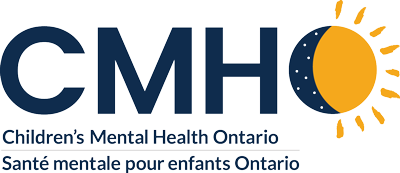C1-1: Promoting Resiliency in Early Childhood through Innovative Parenting Interventions
The gaps and inequity in children’s mental health services are longstanding and investment in the early years are critical to optimize positive well-being. In 2019 our team, which includes clinicians, scientists, parents and/or caregiver partners and community stakeholders, adapted a virtual caregiver program, I-InTERACT-North, to address the mental health needs of children with early brain injury and neurodevelopmental conditions. I-InTERACT-North is an evidenced-based program that promotes positive parenting relationships during the early years, strengthens child social and emotional competency and provides psychoeducation to parents regarding their child’s brain development. To date, we have three successful pilot trials among diverse groups of children. In 2020, we partnered with the Province of Ontario Neurodevelopmental Disorders (POND) network and provided the program at a wider-scale. We transitioned from a one-size-fits all full program delivery, to a novel stepped-care approach. Stepped care involves providing psychological support from the least to the most intensive, using self-led materials (i.e., podcasts) to more guided and 1:1 supportive care, which is matched to the family’s needs.
Across all trials, the program significantly improved positive parenting and child behaviour. Parents uniformly reflected how the program and their therapist successfully incorporated their family’s cultural background to guide treatment. In this presentation, we will describe the journey of the I-InTERACT-North program among various clinical populations including early brain injury, ADHD and ASD. We will also illustrate the value of patient-oriented research partnerships, equitable service delivery and next steps of this children’s mental health program including systematic implementation strategies into clinical care.
Presenters:
Rivky Green is a post-doctoral fellow in Neonatal Neurology and Dr. Williams’ NeuroOutcomes Lab in at the Hospital for Sick Children. She completed her PhD in Clinical-Developmental Neuropsychology at York University. Her clinical intervention interests are on prevention and management of neurodevelopmental disorders in children, including by optimizing parenting strategies for these children. In the NeuroOutcomes lab, Rivky is a supervisor and senior therapist in the I-InTERACT North program. Rivky’s assessment experience has focused on pediatric neuropsychological assessments for children with early brain injury with an emphasis on remediation. Her research focuses on predictors of positive parenting, and is working on the systematic implementation of I-InTERACT into clinical care. Rivky is also focusing on knowledge dissemination in the field of prenatal health and aims to apply her research and clinical background to optimize child health outcomes before insult occurs.
Rachael Lyon is a doctoral student in the Clinical-Developmental Neuropsychology Psychology program at York University and a pre-doctoral psychology resident in the Hospital for Sick Children. Rachael has trained at The Hospital for Sick Children (SickKids) with the Epilepsy Surgery Program and Epilepsy Classroom, at Toronto Western Hospital with the Tourette Syndrome Neurodevelopmental Clinic and at the York University Psychology Clinic where she has gained experience working with children, youth, and families with a variety of presenting concerns. She has also received training through her long-standing involvement in clinical research at the Centre for Addiction and Mental Health (CAMH). Rachael has experience delivering a number of evidenced-based treatments, including Cognitive-Behavioural Therapy (CBT), parenting programs (e.g., The Incredible Years), DBT, and play-based therapy.
Dr. Tricia Williams is a Clinical Neuropsychologist and Associate Scientist at the Hospital for Sick Children. Williams’ research focuses on neuropsychological outcomes following early brain injury and the importance of supporting the family in optimizing resilience. She is the principal investigator of the I-InTERACT-North project and the Parent Experiences project. Together with a multi-disciplinary team, a strong group of students and research staff, Dr. Williams’ research program aims to learn more about modifiable factors promoting resilience following early brain injury, and to identify modes of service delivery that will optimize neuropsychological outcomes.
C1-2: Development of an Infant and Early Childhood Mental Health Pathway
Research demonstrates that the first six years of a child’s life are vital. Given the impact of early attachment and childhood experiences on lifelong mental health (MH), focus on treating the specific MH needs of infants and young children is essential. This presentation highlights the development of a 0-6 MH service at CHEO, a children’s hospital in Ottawa, Ontario, which uses the Choice and Partnership Approach (CAPA) model. We completed an evaluation of current mental health services available to determine whether this population’s needs are being met. The goal was to identify current resources and service gaps to inform development and implementation of an outpatient-based infant and early childhood mental health (IECMH) program for patients 0-6 years old with complex emotional and behavioural problems at CHEO.
A process map was developed in consultation with over 30 community partners to guide program development for a 1-year pilot project to implement a new infant and early childhood mental health service at CHEO. Data collected from surveys and focus groups helped determine how effectively the pathway was integrated within current CAPA resources. Lessons learned from this pilot MH service resulted in increasing access to the service for children 0-6 and their families. The pathway’s inclusion criteria were adjusted based on the characteristics of children and families presenting during the pilot year, and the process map was refined to reflect a more streamlined pathway to provide care. The IECMH program was successfully implemented as part of the CAPA model for outpatient MH services.
Presenters:
Dr. Katherine Matheson is a Child and Adolescent Psychiatrist at the Children’s Hospital of Eastern Ontario (CHEO) and an Assistant Professor at the University of Ottawa. She completed her medical school and residency training at Dalhousie University in Halifax, with additional fellowship training in Ottawa and Toronto. Dr. Matheson is the co-lead of the CHEO Infant and Early Childhood team and is passionate about working with young children and their families. She is a proponent of trauma-informed care and is focused on education/research predominantly in the area of infant mental health and adverse early experiences.
Genevieve Brabant is a bilingual Social Worker (MSW, RSW) with twenty years of experience in child, youth, and family mental health, including seven years of management experience in clinical settings and over five years of teaching experience at the college level. Her practice is anchored in a structural, anti-oppressive and trauma-informed framework, as well as an attachment-based, developmental, and family-centered approach to helping children, youth, families, and communities reach their full potential.
Geneviève’s role within IECMH at CHEO is to provide clinical services as well as program coordination to achieve the program’s vision and goal: to establish a permanent clinical academic IECMH Service that provides clinical care, knowledge mobilization and advances the science of IECMH through research. In her spare time, Genevieve enjoys spending time with her family, being physically active and learning about health and nutrition.
Heather Bragg, MSW, RSW, is a social worker in clinical practice based in Ottawa, ON. For the past decade, she has been worked mental health at the Children’s Hospital of Eastern Ontario (CHEO), specifically in the Emergency Department, Abuse and Trauma team, school-based day treatment program, Outpatient Mental Health program, and the Infant and Early Childhood Mental Health Team. Heather has also received training and worked at other local agencies, including The Royal Ottawa Mental Health Centre and the Youth Services Bureau (YSB). In addition to her clinical work, she actively engages in research across various domains, such as depression screening, family-based treatment for teenagers, and online group intervention. Heather is proud to be the winner of the 2019 Airdrie Thompson Guppy Award for Excellence in Social Work at CHEO.
Dasa Farthing is a Clinical Manager with the Mental Health Department at CHEO. Previously she was a Project Manager with South-East Ottawa Community Health Centre and was a Project Manager of Central Ottawa HealthLinks. HealthLinks was an innovative care coordination model for complex care that supported the development of current Ontario Health Teams. She is a passionate advocate of client-centred/strengths-based approaches to providing care and improving the overall quality of services in the healthcare system. She holds a Master’s degree in Psychiatry from McGill University and a Bachelor’s degree in Criminology, Law and Sociology from Carleton University, where she was also captain of the Carleton University Varsity Basketball Team. She was a member of the National Jr. Slovak Women’s Basketball Olympic Team in Moscow, Russia.

